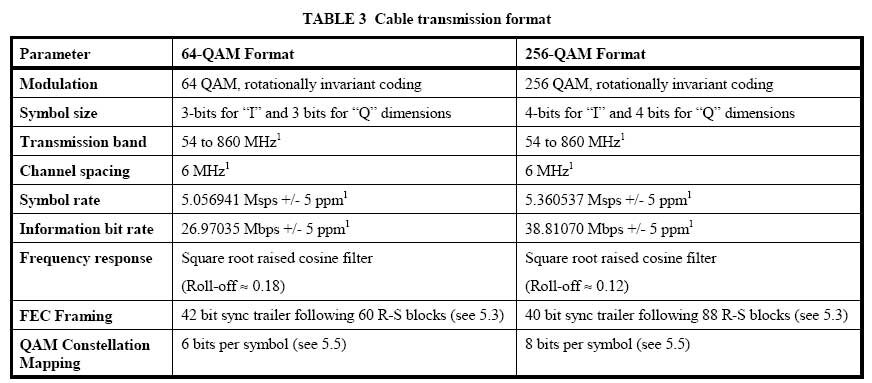Like most people i have a very hard time buying into D*TV's promotion of 100 National HD Channels by end of this year. But reading all the channels they have announced i have to wonder if they are exlusive to D*TV or will other providers (FiOS) pick these up at the same time? Even if they don't have 100 by end of the year, having FX, SciFi USA and others on that has me very excited, but have no desire to go back to D*TV. Any news of this coming the FiOS way?
DJ
Although I hate to come to Verizons aid right now, everyone should read DirecTv's claims very carefully.
The future of television has arrived. DIRECTV brings you our new HD DVR, soon with the capacity to offer 150 HD channels*,
*Number of channels subject to available HD programming.
This is a really easy claim for them to make, but one must also remember that DirecTv utilizes
HDLite to send their HD content to the subscribers. More can be read about HDLite by following the link. Suffice to say that DirecTv is not broadcasting, transmitting, or forwarding in HD no matter what they claim.
In addition, note that they are only claiming they have capacity to boradcast 150 HD channels, not that they have that many signed up. This is deceptive advertising at the finest levels.
Another part of the report claims assumptions that they have the 3 times the capacity of cable providers. Two things to keep in mind here are:
1) Satellite providers are compressing the HD signals and cable providers are sending pure HD with no filtering and compression.
2) Fios is not a traditional cable provider. Fios utilizes fiber optics to reach the home where traditional cable companies utilize copper coax. Coax, at best, is limited to 10Mps (megabytes per second) where fiber optic can reach speeds of 10Gps (gigabytes per second).
As a side note, satellite has a maximum capacity of 60Mps assuming a perfect signal and large apature dish, not a pizza sized dish that DirecTv sends it's customers.
Again, I am very disappointed with Verizons choice in hardware but the concept and delivery that they are doing is the future. Satellite will be the option for extreme rural areas in the future where fiber does not go. One must question the financial viability of this service. Air time on those expensive birds is not cheap and, unlike fiber, they get old and have to be replaced. This means that as fiber gets the infreastructure built costs can start to decline; where satellite will continue to have to fund new equipment launches, which the customers pay for.
My recommendations:
If you are happy with your current service stay with it until Verizon works out the hardware and software problems with its service. If you are at the end of a contract and someone else wants you to renew, DON'T. Go month to month or go ahead and make the switch.
Hopefully Verizon will have some customer loyalty incentives in the future. If this were the case it would make it very difficult for the satellite providers to profit as they rely on people changing service providers.


